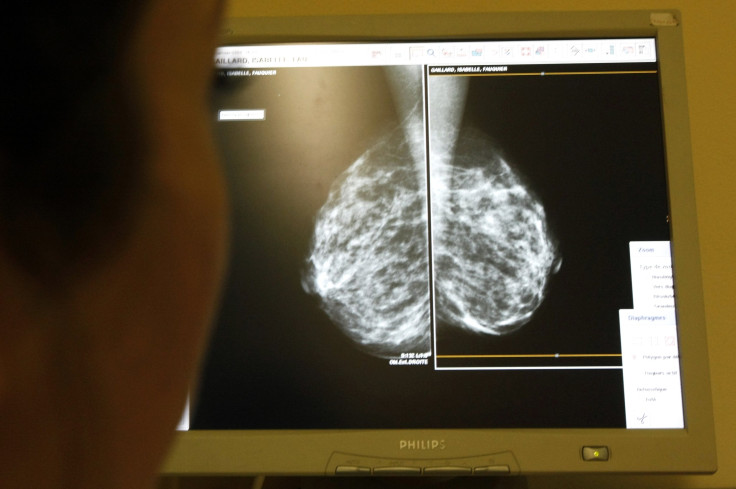Breast Cancer Can Be Stopped 'In Its Tracks' Using Osteoporosis Drugs: Study

A drug used to treat bone disorders like osteoporosis could be employed to stop the spread of breast cancer, according to a research published Wednesday. The findings of the latest study could open the door for powerful new treatments against the deadly disease.
A team of scientists identified an enzyme LysYl Oxidase (LOX) that is released from breast tumors and primes the bones for breast cancer. Researchers found that blocking off LOX could halt the spread of the cancer, which often reaches other parts of the body through bones. They also found that bisphosphonates, a type of drug used to treat fragile bones, could block the enzyme in mice, hence halting the spread of the disease.
The findings, published in the journal Nature, only apply to patients with a certain type of breast cancer known as estrogen negative breast cancer -- 30 percent of breast cancer patients are diagnosed with this type of the disease.
University of Sheffield researcher Alison Gartland, one of the authors of the study, said the team was “really excited” by the results.
“This is important progress in the fight against breast cancer metastasis and these findings could lead to new treatments to stop secondary breast tumors growing in the bone, increasing the chances of survival for thousands of patients,” she said, according to the Independent.
Breast cancer caused the deaths of over 39,000 women in 2013, and the majority of these occurred after the cancer spread to other parts of the body, primarily through the bones.
“Once cancer spreads to the bone it is very difficult to treat,” University of Copenhagen researcher and co-author of the study Janine Erler said, according to the Press Association. “Our research has shed light on the way breast cancer cells prime the bone so it is ready for their arrival.
“If we were able to block this process and translate our work to the clinic, we could stop breast cancer in its tracks thereby extending patients’ lives,” Erler added.
© Copyright IBTimes 2024. All rights reserved.





















